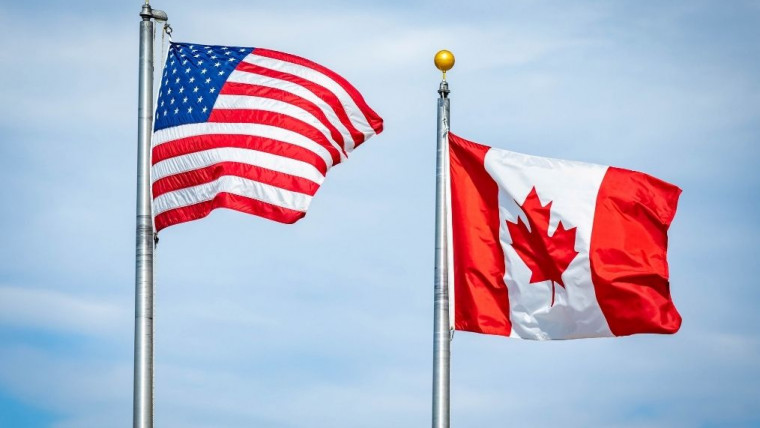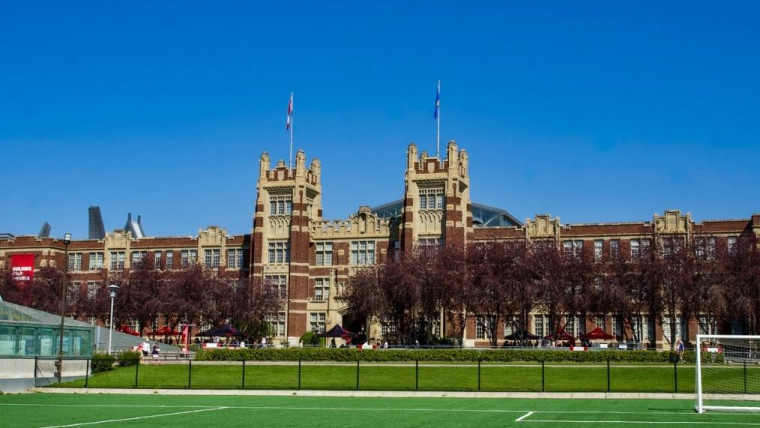Getting ready to study in Canada takes planning—and preparation is the key to a smooth and successful start. From securing your student visa to finding housing and adjusting to the Canadian climate, there’s a lot to think about before classes start. In this blog, we’ll walk you through the top 10 things to do before starting university in Canada.
Whether you’re finalizing paperwork or packing your bags, this guide will help you feel more confident and in control.

Top 10 Things to Do Before Starting University in Canada
Here are ten essential steps international students should take to start their college journey in Canada with confidence.
1. Get Your Offer Letter & Acceptance Documents
Your first big step is confirming your admission. Make sure you receive your official Letter of Acceptance (LOA)—you’ll need it to apply for your Canadian study permit.
Next, gather these key documents you’ll use throughout your journey:
- LOA (Letter of Acceptance)
- Academic transcripts
- Tuition payment receipt
- Valid passport
💡 Pro Tip: Keep both printed and digital copies in a folder or cloud drive. These items are often required multiple times, so store them where you can easily access them. You’ll need them for:
- Immigration checks
- Airport entry
- University enrollment
- Opening a bank account
Being organized early helps reduce stress once you arrive in Canada. Think of this folder as your international student starter kit!
2. Apply for Your Study Permit and Visa
Once you receive your Letter of Acceptance (LOA), don’t wait—start your study permit application right away. Processing times vary by country and can take weeks or even months.
Documents Checklist:
- Valid passport
- Letter of Acceptance (LOA)
- Proof of financial support
- Passport-sized photos
- Statement of purpose (if required)
- Immigration medical exam results (if applicable)
Visit the official IRCC website for the most current application guide and processing updates.
💡 Pro Tip: If you plan to stay after graduation, look into Post-Graduation Work Permit (PGWP) eligibility early. It’ll help save you time later.
3. Secure Your Housing Early
Finding the right place to live is one of the biggest decisions you’ll make. As soon as your enrollment is confirmed, start your housing search. You can choose university housing or private rentals.
Apps like UniApplyNow Accommodation make it easy to:
- Search by university, college or city
- Compare rental prices and features
- Check amenities like Wi-Fi, gym, and laundry
- Explore locations on a map
- Contact landlords directly in-app
💡 Pro Tip: The earlier you book, the better your chances of finding a space that fits your needs and budget. Popular student areas fill up quickly, so don’t wait too long.

4. Book Your Flights to Canada
Once your study permit is approved, it’s time to book your flight. Aim to arrive at least one week before classes begin. This extra time gives you time to settle in, adjust to the time zone, and attend orientation.
To make your travel experience smoother:
- Book early to find better prices and student travel deals.
- Keep your passport, study permit, and entry documents handy when traveling.
- Double-check airline baggage rules before packing.
- Carry essentials in your hand luggage, such as medications, chargers, and copies of key documents.
By arriving early, you’ll not only adjust more easily but also get a strong head start on college life.
5. Register for Orientation and Courses
Orientation is the perfect way to start your new journey in Canada. These events help you learn how your school works, find classrooms, and meet new people—so don’t skip them!
You’ll learn how to:
- Access online learning tools and student portals
- Find your classrooms and support services
- Connect with advisors and new classmates
- Join clubs, events, and social activities
If course registration is open, choose your classes early based on your program guide. Knowing your schedule helps you manage your time from day one.
6. Open a Bank Account in Canada
Managing your money abroad starts with opening a local Canadian bank account. This helps you pay tuition, rent, and daily expenses with ease.
Most students choose student accounts from popular banks such as:
Visit a local branch with your passport, LOA, and study permit. Some banks offer newcomer packages with no monthly fees or free banking tools—doesn’t hurt to ask!
7. Understand Health Insurance Requirements
Health insurance is required for all international students in Canada—but coverage varies on the province. Some schools include insurance in your tuition, while others ask you to register separately.
To avoid confusion or surprise costs later, make sure you understand what’s included in your plan.
Here’s what to check:
- Is it already included in your tuition?
- Does it cover doctor visits, emergencies, or prescriptions?
- Where is your nearest clinic?
- Do you have your insurance card with you?
💡 Pro Tip: Keep a digital copy of your insurance info on your phone.

8. Get a Canadian SIM Card & Mobile Plan
Having a local phone number helps you stay connected, access maps, and contact your school. Right after you arrive, visit a nearby mobile store.
Bring these with you:
- An unlocked cellphone/smartphone
- A valid photo ID (passport or study permit)
Major providers like Bell, Rogers, and TELUS offer student discounts and prepaid options—some even include international calling. Look for a plan with enough mobile data for daily use, affordable monthly costs, and the flexibility of no contract.
Staying connected from day one will help you feel more at home in Canada.
9. Learn About Canadian Culture & Classroom Etiquette
Starting university in a new country means learning more than just academics. In Canada, professors value active participation, punctuality, and professional communication.
To help you feel more confident, here are some quick tips:
- Speak up in class – Sharing ideas and asking questions shows engagement.
- Submit assignments on time – Deadlines are important, late submissions are typically not accepted.
- Write polite emails – Always greet your professors and sign off respectfully.
- Be independent – Canadian students are friendly, but often value personal space.
- Say “please” and “thank you” – Small gestures make a big difference in daily life.
Each step brings you closer to feeling at home, both on campus and in Canada.
10. Pack for Canada’s Weather & Lifestyle
Packing smart makes a big difference when moving to Canada. The weather can shift quickly, especially in winter. Being prepared will help you settle in comfortably and avoid freezing your buns off.
Here’s what to include in your suitcase:
- Warm layers (sweaters, jackets, scarves)
- Winter coat, gloves, and waterproof boots (if arriving in colder months)
- Laptop, chargers, and earphones
- Important documents (passport, Letter of Acceptance, insurance info)
- Power adapters (Canada uses 110V and type A/B plugs)
- Toiletries and basic medicine for the first few days
💡 Pro Tip: Don’t overpack—leave space for things you’ll buy later. A smart packing list helps you feel comfortable and prepared.
Final Thoughts & Next Steps
Preparing for college or university in Canada takes time, planning, and the right support. By organizing everything early—from your visa to your housing—you’ll arrive confident and ready to succeed. Each step brings you closer to a smooth start and a memorable student experience.

🎓 need help applying to college or university in Canada?
Whether you’re exploring degree options or preparing documents, we’re here to help you succeed.
UniApplyNow offers free expert support to help you choose the right school, submit a strong application, and meet admission requirements. We’ll guide you through the entire process—no TOEFL or IELTS needed for many programs.
📩 Contact us today and take the next step toward your Canadian university journey—with confidence!
Want to read more? How to Get an International Student Loan: No Co-Signer, No Collateral.







